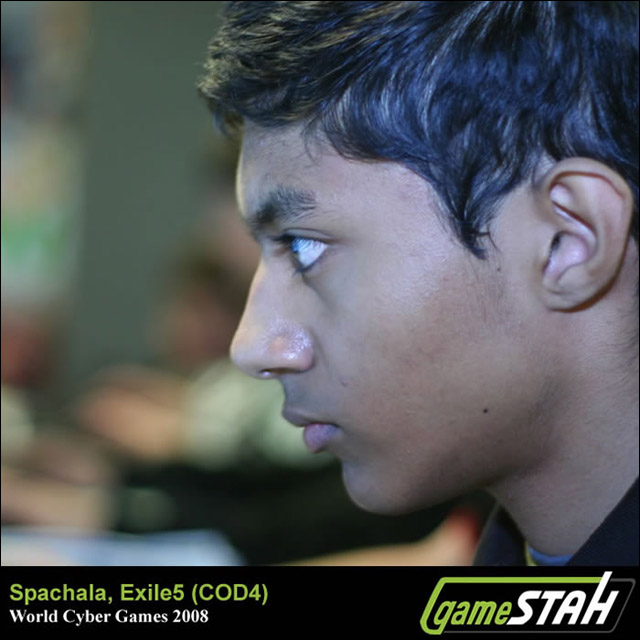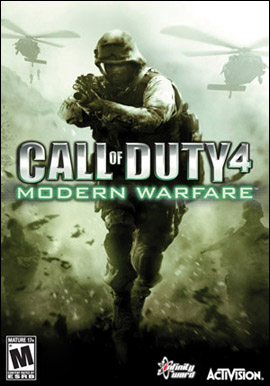When Achala Mataraaratchi first started playing computer games, the technology behind them wasn’t very advanced. “Probably the first game I ever played was Commander Keen — the original DOS game,” he says in a recent interview.
Commander Keen was released in the early 1990s by then-nascent developer id Software, which would go on to dominate the globe with its Wolfenstein, Doom and Quake franchises. According to the extensive Wikipedia history of the game, it was notable for its use of EGA graphics — a new format which allowed computers to display 16 simultaneous colours on a screen with a resolution of up to 640×350 pixels.
But that was enough for Mataraaratchi (known online by his handle, ‘Spachala’). “I really enjoyed it … I think I was like four years old.”
These days the Sydney-based university computer science student is playing games with a little more complexity to them. And his childhood wonder at computer games has turned into a more serious hobby — Mataraaratchi is a well-known competitive gamer in the Australian scene and with his team-mates has taken out several major titles.
The local competitive gaming scene (also known internationally as e-sports for electronic sports) is smaller in Australia than in some countries internationally — notably South Korea, where professional players of the StarCraft real-time strategy game — first released in 1998 — are treated as popular celebrities, are paid salaries, train in teams and attract sizeable sponsorships.
But even in the smaller local scene, Mataraaratchi and his team has taken out a number of titles. He focuses on games in the Call of Duty series — in the last couple of years specifically on Call of Duty 4: Modern Warfare and Call of Duty: World at War.
In 2008 and 2009, for example, the Call of Duty section of the eXile5 multi-gaming organisation the gamer played with took out ABC TV show GoodGame’s 6v6 Sabotage competition and the NewSchoolGamer Thermaltake Ladder. It was also placed third in the Gamerthon 2008 LAN (local area network) competition and second at World Cyber Games Australia (also LAN), as well as being a semi-finalist in Season 1 of the CyberGamer competition.
In 2009 things kept on rolling. With the release of World at War came an undefeated title in CyberGamer Open Season 1 and Invite Season 1 (the second with a 9:1 win/loss ratio). And the team placed fourth in the GotGames CEVO-P Season 1 competition.
Never heard of any of these competitions? You’re not alone. As we mentioned, e-sports is a small field in Australia. But in that field Mataraaratchi is well-known. And he’s about to face his biggest challenge yet.
Last week Dell high-performance gaming subsidiary Alienware announced it would hold a massive local online Call of Duty 4 competition dubbed the ‘Clan Challenge’, with the eight finalist teams of five members each to be flown to Sydney for a grand final face-off.
“Competitive gaming in Australia — it’s not as big as it is overseas,” says Mataraaratchi. “In Australia it’s slowly getting there, slowly increasing. The Alienware competition is the biggest competition in a while — I’ve never competed in something this large. It’s similar to something you’d see in Europe and North America.”
If that tournament is compared to a sport, then Mataraaratchi certainly has his equipment prepared. He currently runs a Quad-Core Q6600 CPU with a NVIDIA Geforce 8800GT graphics card, 4GB of RAM, a 19″ LCD monitor, aspecialised Logitech G9 gaming mouse and G15 gaming keyboard and a Razer Goliathus Speed mouse mat. For an operating system he used the 64-bit version of Windows 7.
There has recently been a big of upheaval in Mataraaratchi’s competitive gaming life. He’s spent several years playing as part of eXile5’s Call of Duty division. The group is a ‘multi-gaming’ organisation, which means it fields teams in several games under the one banner. Its roots were in Battlefield 2, but then added Counter Strike, Counter Strike Source, Team Fortress 2 and Call of Duty.
eXile5 has also been successful in attracting big names for sponsors — Alienware, AMD and ATI are on its list.
However, the Team Fortress 2 division, and the Call of Duty division which Mataraaratchi captains, left eXile5 last week. The multi-gaming group wished its former players all the best and thanked them for their efforts. Mataraaratchi is now leading a new competitive team, clicK! Gaming.
Mataraaratchi’s favourite memory of playing with the team is when it competed in World Cyber Games Australia in 2008. The competition was played with all of the competitors in the same room (on the same local area network or LAN) as opposed to being online.
“Our sniper, he pulled off a few amazing clutches,” he says, referring to a situation where one player is fighting against the odds — against two or more players singlehandedly. “He managed to win the round, and won a few rounds to pull us over the line,”
The team ended up losing in the final to Team Immunity, who Mataraaratchi says is probably the top competitive gaming team in Australia at the moment. “They’ve had the most success,” he said, noting the team has represented Australia overseas in Counter Strike and in Singapore for Call of Duty.
However Mataraaratchi says the whole experience was still his best moment playing competitively.
Other major teams in Australia, some of which Mataraaratchi notes as being threats going into the Alienware competition, include Archaic Esports, Frenetic Array, and Sequential Gaming (SQL).
You want a piece of me, boy?
One problem with today’s competitive gaming scene, Mataraaratchi says, is that video game companies don’t appear to see competitive gaming as important compared with their much larger mainstream customer base.
“The new games that are coming out are not really catered towards competitive gamers,” he says. “The skill level required to play the games is not as important as it used to be. That’s causing a problem, because if people play the same game for so long, it gets a bit stale.”
For example, the new Call of Duty game, Modern Warfare 2, was released without dedicated server functionality, breaking a long tradition for the series and forcing competitive gamers onto the same online networking system as console gamers — without the custom configurations that competitive clans like clicK! Gaming need.
“It’s impossible for Modern Warfare 2 to become competitive without dedicated servers,” says Mataraaratchi, noting that current Call of Duty gamers were looking at other games to see which would be the next big shooter for competitive gaming.
One game that has the potential to give Australia’s e-sports community a boost is StarCraft II, which entered public beta testing today. Mataraaratchi notes he isn’t as familiar with the real-time strategy genre which StarCraft is a part of, but he points out that the original StarCraft is still big overseas, especially in Asia. “When it comes out, I think there will be a big impact,” he says.
In South Korea, StarCraft matches are broadcast on television with audio commentary, a feature that’s also possible with first person shooters like Call of Duty, Counter Strike and so on. One popular website to do so is gamestah.com — Mataraaratchi notes that the site has been doing so since the first Call of Duty, back in 2003.
“Hopefully one day in Australia the competitions will be able to give a good return of investment to the sponsors, to make the competitions viable”, the competitive gamer says.
Image credits: Achala Mataraaratchi, Infinity Ward


